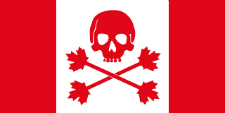
Representing the movie and music industries, BREIN argued that NSE must delete all infringing content from its servers, and in 2011 the Court of Amsterdam sided with the anti-piracy group.
In its initial verdict, the Court concluded that NSE willingly facilitated online piracy through its services. As a result, the company was ordered to remove all copyrighted content and filter future posts for possible copyright infringements.
According to the Usenet provider, this filtering requirement would be too costly to achieve. It shut down its service but appealed the case.
After several more years of litigation, the Amsterdam appeals court then ruled that NSE wasn’t liable for pirating users after all, but that it is required to offer a fast and effective notice and takedown procedure, possibly with additional measures.
BREIN was not happy with this outcome and decided to take the matter to the Dutch Supreme Court. While NSE is no longer a threat, the case could prove crucial for many other Usenet providers.
BREIN has been very critical of some commercial Usenet companies, describing them as a refuge for pirates of all ilks, with uploaders, site owners and resellers working in tandem to facilitate copyright infringement.
The Dutch Supreme Court has taken on the case but it’s struggling with some key questions on the liability side. In an order last week, it, therefore, decided to ask the European Court of Justice (ECJ) for input.
The four questions all relate to the role of Usenet providers, similar to NSE, as third-party intermediaries. NSE argues that its role is no different than a regular hosting service that stores content, in the sense that it merely offers a platform where people can share content.
However, NSE also facilitated the availability of content, which was sometimes synchronized with that of other Usenet providers. In addition, it offered a search functionality which made it easier for customers to find files.
The Supreme Court questions whether NSE is “communicating to the public” and whether it’s liable for the infringements of users. Among other things, this depends on whether it has an “active” or “passive” role under EU law.
To get more clarity, the following questions (translated and summarized) are referred to the EU Court of Justice. These apply to Usenet providers that operate in a similar fashion to NSE. This includes selling subscriptions to its servers and offering a substantial quantity of copyright infringing works.
1. Is such a Usenet provider performing an act of communication to the public under EU law?
2. If the answer to question 1 is yes, is the Usenet provider liable for this act of communication or is it shielded under Article 14 of the E-commerce Directive?
3. If the answer to question 1 is no, is the Usenet provider playing an active role that would make it liable for copyright infringements?
4. If the Usenet provider is shielded from liability, it there anything else it can be required to do?
Interestingly, the Dutch Supreme Court also references “Article 13” (now Article 17) of the new EU Copyright Directive. This article requires online content sharing service providers to obtain licenses, or ensure that infringing content stays off their platforms once notified.
While the legal framework has yet to be adopted and implemented, the Supreme Court states that it’s unclear how this should be taken into account.
All in all, the answers from the EU court will be crucial for the NSE case and the future of many other Usenet providers in Europe that operate in a similar fashion. The Court previously ruled in similar cases against The Pirate Bay and a seller of fully-loaded streaming boxes, which were both held liable.
That liability based on EU law is not limited to pirate sites and media boxes, which became apparent in an order handed down by the Supreme Court of Italy last month.
In a case filed by the TV company Mediaset, the Italian court ruled that Yahoo! can be held liable for broadcasting infringing videos under certain conditions. The Supreme Court set specific guidelines for when a hosting service is seen as operating “actively” or “passively,” and sent the case back to a lower court.
BREIN obviously hopes that the EU Court of Justice will conclude that Usenet providers can indeed be held liable. If that’s the case, the anti-piracy group is likely to put pressure on other providers, similar to what it did with dozens of streaming box sellers last year.
Source: TF, for the latest info on copyright, file-sharing, torrent sites and more. We also have VPN reviews, discounts, offers and coupons.


 This week we have four newcomers in our chart.
This week we have four newcomers in our chart.

 A few weeks ago,
A few weeks ago, 
 Every year, thousands of people are sued in the United States for allegedly sharing pirated video, mostly through BitTorrent.
Every year, thousands of people are sued in the United States for allegedly sharing pirated video, mostly through BitTorrent.



